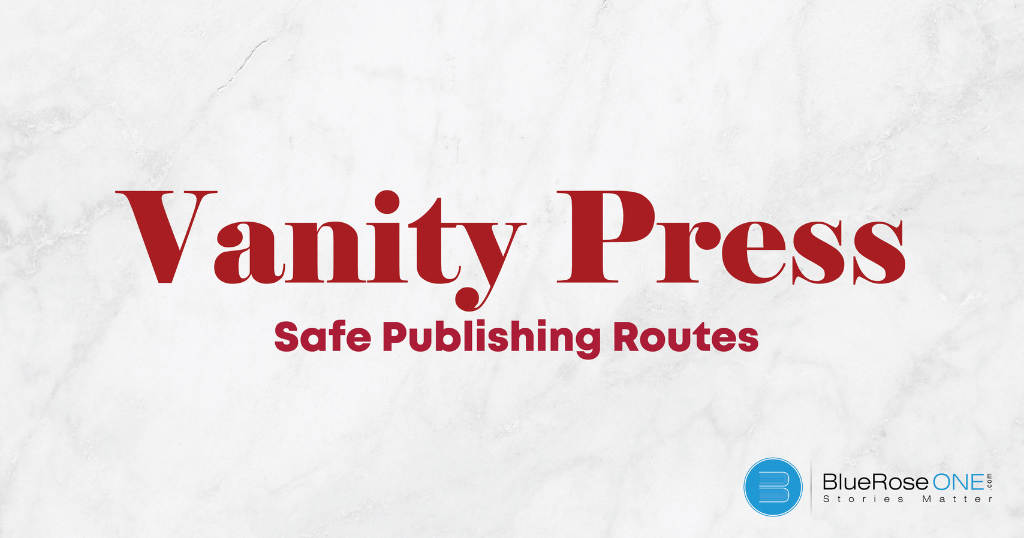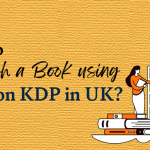A vanity press, also known as a vanity publisher or subsidised publisher, is a publishing business that charges writers for book creation and distribution. Vanity presses, as opposed to traditional publications, transfer the financial responsibility to the author.
Vanity press authors frequently pay for services like editing, cover design, printing, and distribution. While these services may be legal, the essential difference is that the author, not the publisher, pays for them. Vanity presses may provide publishing services to nearly anybody willing to pay, regardless of the manuscript’s quality or marketability.
Vanity press authors may do so for a variety of reasons, including a desire for creative autonomy or the idea that regular publishing outlets are difficult to access. Vanity publishing, on the other hand, has been chastised for playing on authors’ aspirations and ignorance of the publishing system. Many seasoned publishing professionals advise writers to avoid vanity presses and to extensively investigate any publishing deal to ensure transparency and fairness.
Vanity Press vs Self-Publishing
The distinction between a vanity press and self-publishing lies in the payment structure and control over the publishing process. A vanity press requires authors to pay upfront for various publishing services, often of questionable quality. On the other hand, self-publishing empowers authors to take complete control of their book projects and enjoy the subsequent benefits.
To steer clear of potential traps, authors must be vigilant. In the realm of self-publishing, where scams exist, acquiring knowledge is crucial. Vanity presses thrive on authors’ lack of expertise, assuming they are unfamiliar with the intricacies of the publishing process. Therefore, turning to a publishing company may seem like a logical choice for those unaware of the self-publishing landscape.
As an author, staying informed and engaged in the vast ocean of self-publishing information is key. Vanity presses capitalise on authors’ potential lack of knowledge, making it essential for writers to educate themselves and navigate the self-publishing journey with confidence.
You may also like: WhiteSmoke Review: Features, Pricing, Pros & Cons
Reasons why one can fall for Vanity Press?
Authors, particularly those who are yet to be published, often find themselves ensnared in the web of vanity press scams due to various reasons, primarily rooted in their lack of knowledge about the publishing landscape and a genuine desire to see their work in the hands of readers. The allure of promises to catapult a freshly completed manuscript to thousands of readers and achieve global sales figures can be irresistibly tempting, especially for aspiring authors seeking a foothold in the competitive publishing industry.
One of the fundamental reasons authors fall prey to vanity press scams is their lack of awareness about how to navigate the publishing world without being exploited. Many aspiring authors are innocent and eager to see their literary creations come to life, making them vulnerable to predatory publishing companies. The complexities of the publishing process may overwhelm these writers, leaving them susceptible to misleading offers from vanity presses.
The desperation for knowledge and guidance in book publishing often drives authors into the waiting arms of vanity publishers. The intricate nature of the publishing journey can be intimidating for those unfamiliar with the terrain, and the desire to get it right the first time becomes a catalyst for falling into the vanity press trap.
Read: How to Self-Publish an eBook and Sell It Online: A Comprehensive Guide
The fear of not publishing or making a misstep in the process leads authors to seek immediate solutions, making them easy targets for deceptive publishing schemes.
Passion for publishing can sometimes cloud an author’s judgement, making them more susceptible to vanity press scams. The overwhelming eagerness to share one’s work with the world may override the critical evaluation of offers, pushing authors to hastily accept seemingly advantageous deals without considering potential pitfalls. Vanity publishers capitalise on this fervour, offering quick solutions that often result in financial losses and disappointment.
Technological barriers also contribute to authors falling victim to vanity press scams. Those who are not tech-savvy may find the self-publishing process daunting and may prefer to pay someone to handle the intricacies on their behalf. Vanity presses exploit this vulnerability by presenting themselves as the solution to the technological challenges authors may face, further enticing them into costly agreements.
You may also read: Negative Adjectives to Describe People: Examples and Meanings
Some scenarios of Vanity Press
- The Expensive Package:
- Scenario: An aspiring author signs up with a vanity press, attracted by promises of quick publication and dreams of becoming a bestselling author.
- Issue: The press offers an expensive package for services like editing, cover design, and marketing. The author pays a substantial amount but receives subpar services and minimal marketing efforts.
- Quality Compromises:
- Scenario: A writer opts for a vanity press due to frustration with traditional publishers rejecting their manuscript.
- Issue: The press, focused on profits, rushes the publication process, resulting in poor editing, formatting, and cover design. The final product lacks professional quality, impacting the author’s reputation.
- Hidden Costs:
- Scenario: An author chooses a vanity press for the apparent simplicity of the publishing process.
- Issue: After the initial payment, the press reveals additional hidden costs for distribution, marketing, and author copies, leaving the author with unexpected financial burdens.
- Promises vs. Reality:
- Scenario: An author is enticed by promises of bestseller status and fame from a vanity press.
- Issue: Despite investing heavily, the press does little to market the book effectively. The author’s dreams of success are shattered, and the book fails to gain traction in the market.
- Copyright and Ownership:
- Scenario: An author, eager to see their work in print, chooses a vanity press without thoroughly reviewing the contract.
- Issue: The contract includes clauses that give the press extensive rights and control over the book, limiting the author’s ability to republish.
You may also like: Fifty Shades of Grey: Book Review | BlueRoseOne
How to dodge Vanity Press?
For prospective authors, navigating the publishing market can be a demanding undertaking, and the advent of vanity presses adds another degree of complication. These predatory forces frequently prey on authors’ hopes and inexperience, leading them down an expensive and unpleasant path. Authors, on the other hand, may arm themselves with information and tactics to avoid the pitfalls of vanity presses and follow a genuine and satisfying publishing path.
First and foremost, the author’s greatest ally is awareness. It is critical to understand the basic distinction between a vanity press and genuine publication routes. A vanity press often charges writers in advance for various publishing services, whereas self-publishing entails authors assuming ownership of their ideas without paying any upfront payments. Authors should be aware of any publication deal that requires a major financial investment.
Avoiding vanity press fraud requires extensive research. Authors should conduct extensive research on any publishing service or firm they are considering. Online reviews, testimonials, and ratings can give important insights into other writers’ experiences. Legitimate publishers have a track record of successful author partnerships, and their reputation is an important sign of their reliability.
It is critical to understand the terms and conditions of a publishing deal. Vanity presses sometimes add hidden costs and unfavourable stipulations that might harm writers. Contracts should be read carefully, legal counsel should be sought if necessary, and the terms should be fair and transparent.
Authors should also be wary of vanity presses’ high-pressure sales practices. Authors are not coerced into making hasty decisions by reputable publishing firms, nor are aggressive techniques used to gain money. Authors should evaluate their alternatives carefully, confer with trustworthy experts, and make educated judgements based on a comprehensive examination of the publication contract.
Read: The complete guide for book printing on POD(Print On Demand)
Networking within the writing and publishing worlds may bring useful insights and recommendations. Connecting with established authors, literary agents, and industry professionals provides prospective writers with access to a plethora of information. Seeking advice from those who have successfully navigated the publishing journey can assist authors in making informed decisions and avoiding scams.
Educating oneself about the publishing process is a continuous and empowering endeavor. Authors should familiarise themselves with the standard procedures of publishing, including editing, cover design, distribution, and marketing. This knowledge not only enables authors to engage in meaningful discussions with potential publishers but also helps them discern between legitimate services and those that aim to exploit their lack of understanding.
Authors should prioritise platforms that empower them rather than exploit their dreams. Self-publishing platforms and reputable hybrid publishing models offer authors the opportunity to maintain control over their work without succumbing to exorbitant upfront costs. These alternatives allow authors to publish their books professionally while retaining the rights and royalties associated with their creative endeavours.
In conclusion, dodging vanity presses requires a combination of awareness, research, understanding contractual obligations, resisting high-pressure tactics, building a supportive network, and continuous education. By approaching the publishing journey with a discerning eye and leveraging available resources, authors can sidestep the traps set by vanity presses and embark on a legitimate and fulfilling path to sharing their stories with the world.

Best Ways to Publish a Book in 2024 - Publish Your Book Now with BlueRoseONE.com
5 Safe Ways of Publishing?
The days of paying high rates to vanity presses or negotiating the intricacies of working with traditional printing firms are long gone. Authors may now bring their literary masterpieces to life without breaking the budget or sacrificing creative freedom, thanks to a myriad of realistic and cost-effective choices.
Self-Publishing Courses
In the modern day, various credible self-publishing courses provide authors with an educational path to traverse the complex business of book publication. These courses walk authors through the process of writing and releasing a book, covering topics including producing, designing covers, editing, and launching. While there are costs connected with book production, the benefit resides in the writers’ option to select service providers. Self-Publishing School, for example, stands out as a one-of-a-kind hybrid that not only provides instruction but also provides accompanying services and coaching.
However, writers who want to go it alone must be aware of the necessary costs, which include cover design, editing, formatting, and maybe marketing services. It is critical to understand the production expenses, which average roughly $2000. Investing in knowledge and learning the nuances of publishing ensures authors make informed decisions, retaining both royalties and rights.
KDP (Kindle Direct Publishing)
Amazon’s Kindle Direct Publishing (KDP) platform transformed the publishing industry by giving authors unprecedented control over their books and earnings. Setting up a KDP account is a simple procedure that involves registering using an Amazon account or email address. Before publication, authors complete their tax information to ensure a smooth experience. KDP is an appealing alternative for authors seeking autonomy in their publishing journey due to its ease of use and direct access to a worldwide audience.
Print-On-Demand
Print-on-demand services, such as those offered by Kindle Direct Publishing and IngramSpark, enable writers to purchase copies at reasonable print costs. This method enables authors to acquire ISBNs, copyright their work, and retain control of their inventions. Contrary to popular belief, setting up print-on-demand using these platforms is simple, and there is plenty of help available.
The cost of printing a book varies depending on criteria such as size, but writers may expect to pay less than $4 per copy for an average book. This is in sharp contrast to the exorbitant pricing charged by some vanity presses, which is frequently in the $15–20 range per copy. Many vanity presses even employ print-on-demand platforms like IngramSpark to resell books to writers at higher costs.
Traditional Publishers
While not a self-publishing route, traditional publishing involves authors querying their manuscripts with agents. Traditional publishers typically acquire the rights to an author’s work, paying them an advance and covering expenses like editing, cover design, and formatting. However, the lengthy process of finding an agent and waiting for a book to see print can span several years. Additionally, authors must sell enough copies to cover the advance received; otherwise, they may need to repay the difference.
Hybrid Publishers
Hybrid publishers sit in between conventional and vanity presses. In this arrangement, writers cover the initial expenses of book production but earn a larger percentage of royalties after sales, often about 50%. Companies that want to be recognised as hybrid publishers must meet the requirements established by the Independent Book Publishers Association (IBPA). These requirements include transparently screening all book submissions, creating a clear goal, disclosing sales, paying writers more royalties than normal rates, achieving industry production quality standards, and managing all distribution services.
However, authors should exercise caution, as some unscrupulous entities disguise themselves as hybrid publishers while employing similar exploitative tactics as vanity presses. A thorough understanding of industry standards and careful scrutiny of publishing agreements are essential to avoid falling victim to deceptive practices.
Read: A Complete Difference between Hybrid Publishing and Self-Publishing!
In conclusion, authors today have a plethora of safe and empowering options to publish their books. By embracing self-publishing courses, leveraging platforms like KDP and IngramSpark for print-on-demand, considering traditional publishing cautiously, and exploring reputable hybrid publishers, authors can navigate the publishing landscape with confidence, ensuring their creative endeavours reach the audience they deserve.
















